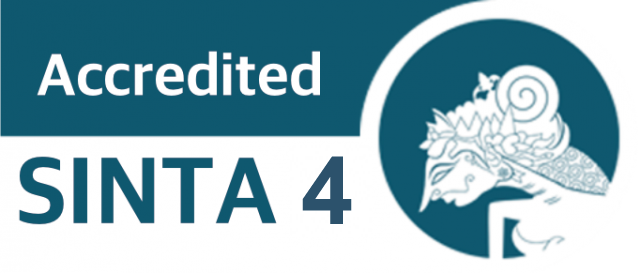Representasi Pendidikan Karakter dalam Soal-Soal Ujian Nasional Bahasa Indonesia
Abstract
Keywords
Full Text:
PDFReferences
Ahmadi F, Y. (2019). Representasi Aksi 212 Di Koran Sindo dan Media Indonesia. Kandai Jurnal Ilmiah Kebahasaan Dan Kesastraan, Volume 15, hlm. 13─26.
ALPTKI. (2009). Pemikiran tentang Pendidikan Karakter dalam Bingkai Utuh Sistem Pendidikan Nasional. Jakarta.
Amalia, A. (2013). Representasi Ironisme Kemanusiaan dalam Industri Musik Populer AS. Jurnal Komunikator, Volume 5 N, 112─128.
Arikunto. (2013). Dasar-Dasar Evaluasi Pendidikan. . Jakarta: Bumi Aksara.
Dewi, I. N. (2012). Reception Audiens Ibu Rumah Tangga Muda Terhadap Presenter Effeminate dalam Program-program Musik Televisi. Jurnal Komunikator, Volume 4 N, hlm. 11─121.
Eriyanto. (2011). Analisis Wacana: Pengantar Analisis Teks Media. Yogyakarta: LKiS Yogyakarta.
Fairclough, N. (2003). Analysing Discourse: Textual analysis For Social Research. London and New York: Routledge.
Hartono. (2014). Pendidikan Karakter dalam Kurikulum 2013. Jurnal Jnana Budaya, Volume 19, 259─268.
Kemendikbud. (2019). Soal Ujian Nasional Tahun Pelajaran 2019 Bahasa Indonesia SMA/MA. Jakarta.
Koesoema A., D. (2007). Pendidikan Karakter Menuju Strategi Mendidik Anakdi Zaman Global. Jakarta: Grasindo.
Kosim, Muhammad. (2011) Urgensi Pendidikan Karakter dalam KARSA, Vol. IXI No. 1 April 2011
Kurnia, N. (2004). Representasi Maskulinitas dalam Iklan. ]Urnal Ilmu Sosial Dan Ilmu Politik, Volume 8, 17─36.
Mustaqimah, A. (2018). Maskulinitas Baru Pada Iklan Royco (Analisis Isi Kualitatif Representasi Maskulinitas Baru pada Iklan Because Love is Always Better Homemade dan The Best Gift is Homemade. Universitas Gadjah Mada.
Mustofa. (2014). Analisis Wacana Kritis (AWK) dalam Cerpen Dua Sahabat Karya Budi Darma: Konteks Pembelajaran Bahasa dan Sastra Indonesia. Jurnal BASTRA, Volume 1, 13 ─ 22.
Santoso, A. (2012). Studi Bahasa Kritis: Menguak Bahasa Membongkar Kuasa. Bandung: Mandar Maju.
Santoso, A. (2013). Materi dan Pembelajaran Bahasa Indonesia di SD. Jakarta: Universitas Terbuka.
DOI: https://doi.org/10.26499/mm.v19i1.2963
Refbacks
- There are currently no refbacks.



